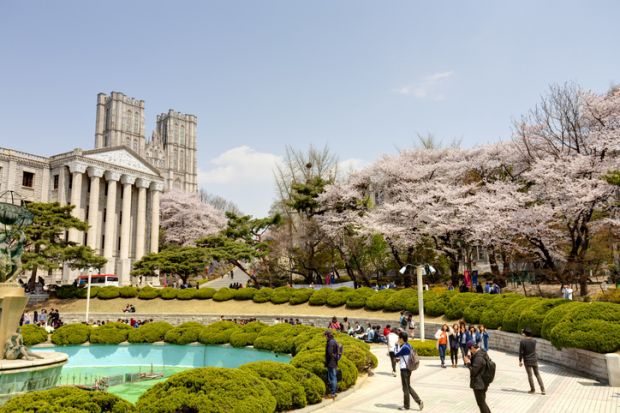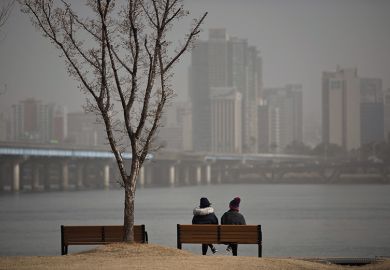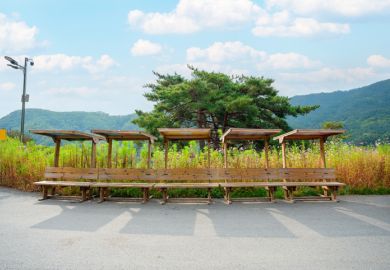Seoul’s local authorities will invest 650 billion won (£370 million) in the city’s universities over five years as the national government turns its focus to struggling rural institutions.
Oh Se-hoon, mayor of the capital city, announced the plan on 18 June, saying it would “boost the city’s global competitiveness” by strengthening universities and improving research capabilities.
The funding will be targeted at helping universities to produce job-ready graduates whose skills align with the city’s future industrial needs.
From 2025, the money will be shared among 42 of Seoul’s universities, 30 of which will receive funds to support collaboration with companies.
“The competitiveness of universities is the competitiveness of Seoul, as well as South Korea,” Mr Oh said. “Through the city government’s new plan, the city aims to harness the universities’ diverse and valuable resources to become a core growth engine of the city.”
The city government said it hoped to secure at least 100 billion won of the total investment from the national budget.
It comes ahead of a planned government scheme to decentralise the country’s higher education system, set to launch in 2025.
The Regional Innovation System and Education (Rise) programme will see the national government collaborate with seven local authorities to provide additional funding and support to struggling institutions in more remote areas of the country.
The initiative hopes to help address the impact of South Korea’s ageing population and declining birth rate on rural universities by giving local governments more power over universities and providing more funding to these institutions.
Seoul, which is home to many of the country’s top universities, has long been favoured as a study destination among young Koreans, often to the detriment of regional institutions. The capital city will not benefit from the Rise programme, but the mayor’s new funding promise, the timing of which coincides with the scheme, suggests that the city is not ready to let go of its grip on Korean learners.
The city’s leaders also aim to attract over 1,000 more international students with postgraduate degrees in natural sciences and engineering. According to the municipal government, there are about 680,000 students, including 75,000 international students, currently studying at Seoul’s universities.
Mr Oh also hopes to reduce barriers between the city’s universities and their local neighbourhoods. As part of the plan, some universities’ facilities will be opened to public use, with dormitories available for tourists to stay in during the academic holidays.
Register to continue
Why register?
- Registration is free and only takes a moment
- Once registered, you can read 3 articles a month
- Sign up for our newsletter
Subscribe
Or subscribe for unlimited access to:
- Unlimited access to news, views, insights & reviews
- Digital editions
- Digital access to THE’s university and college rankings analysis
Already registered or a current subscriber?








